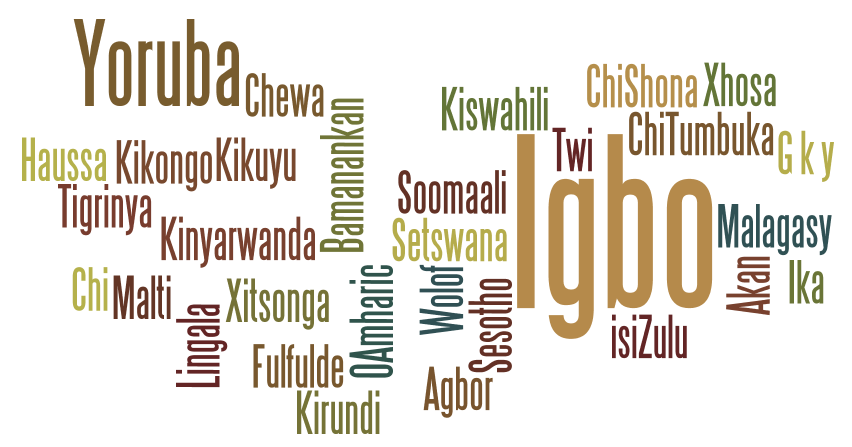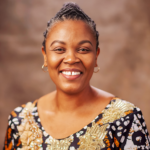Ifeoma, a mother of twins, worried that her boys weren’t speaking enough Igbo. However, her husband, Olu, thought the kids were picking up in Yoruba instead. “They already know more words in Yoruba than Igbo,” he observed, half-smiling.
To help the twins feel connected to their cultural roots, Ifeoma began to code-switch English and Igbo. But the boys consistently responded in English, the language of communication between her and her husband. Try as she might, English seemed to hold a stronger pull over their everyday lives. Was Ifeoma being rather traditional, or was there more at stake?
Nigeria faces a linguistic crisis. At least 29 minority languages have become extinct, and many more minor languages are at risk. Even widely spoken languages like Yoruba, Igbo and Ishekiri are not immune to the threat, according to language experts. The UNESCO Interactive Atlas classifies the 29 endangered Nigerian languages into five categories: vulnerable, definitely endangered, severely endangered, critically endangered and extinct.
Where the English language has become the lingua franca in most African countries, the decline of native languages has sparked discussions within Nigeria’s academic and cultural circles. Can the local languages evolve and adapt to the modern world? Will they rather be overwhelmed by global languages such as English?
Many, like Olu, have resigned to the decline of native languages as an inevitable phenomenon in the natural course of history.
Some experts contend that preserving these languages now at risk involves taking a novel approach towards creating new words, adopting modern terminology and establishing language academies.
To keep Nigerian languages relevant, new neologisms must be introduced for contemporary concepts like “artificial intelligence,” “climate change” and “social media.” While words like “computer” (“kọmputa”) have their equivalents in Yoruba, for example, further efforts are needed to expand the vocabulary, particularly in areas of science and technology.
Establish language academies and research bodies dedicated to developing and standardising new terms. By collaborating with linguists, educators and native speakers, these institutions can ensure that new words are culturally appropriate and widely accepted. Additionally, a public awareness campaign and incorporation of these new words in the media will encourage their usage in daily conversations.
In addition, making Nigerian languages a compulsory subject in colleges and universities is crucial. By incorporating Nigerian languages into the curriculum, students will gain a deeper understanding of their cultural identity and develop language skills that foster national unity. Furthermore, compulsory Nigerian language courses will equip graduates with valuable communication skills.
With the overarching influence of the internet on younger generations, Nigerian languages will enjoy more adoption with strong digital footprints. Online content and social media posts can be translated into local languages. Additionally, local content creators can produce blogs, videos, and tutorials in their native languages, helping the shift from oral traditions to vibrant digital formats.
Yet language preservation cannot happen without the active participation of communities. Engaging local communities using storytelling, music and contests will foster a sense of ownership and pride in their linguistic heritage. These can include competitions for the best new words for modern terms or storytelling contests in local languages. Engaging youth through platforms they already use, like social media, will also spur them to contribute in preserving their native languages.
Establishing a national language development agency is also another strategy to stem further decline. Focused on research, education, and vocabulary expansion, this agency could create language databases, fund projects aimed at revitalising endangered languages, and support research to ensure that Nigerian languages remain relevant in a globalised world.
As Olu admitted, “languages don’t have to die. They just need to adapt.”
Ifeoma, a Nigerian mother, is concerned about her twins' lack of Igbo language skills, as English predominates in their daily life, despite her efforts to code-switch between English and Igbo. This situation highlights a broader linguistic issue in Nigeria, where many native languages, including widely spoken ones like Yoruba and Igbo, are endangered while English remains dominant. Language experts assert that preserving these languages requires innovative approaches, such as creating new terminology for modern concepts and establishing language academies to standardize these terms.
Efforts to sustain Nigerian languages also include making them compulsory subjects in higher education, creating strong digital footprints through online translation and local content, and engaging communities through storytelling, music, and language contests. Additionally, the establishment of a national language development agency dedicated to research and vocabulary expansion is suggested to revitalize endangered languages. Community involvement and the adaptation of languages to modern contexts are emphasized as crucial to preserving linguistic heritage.






